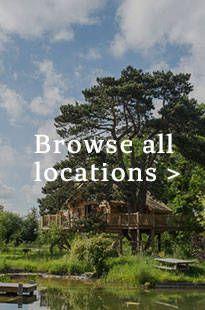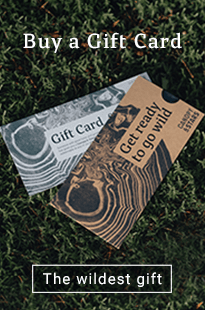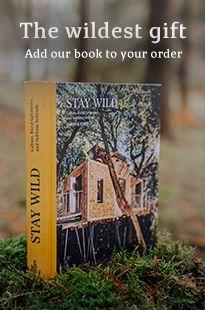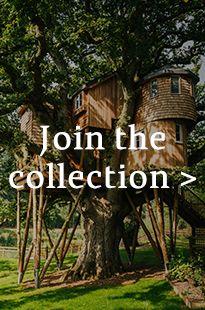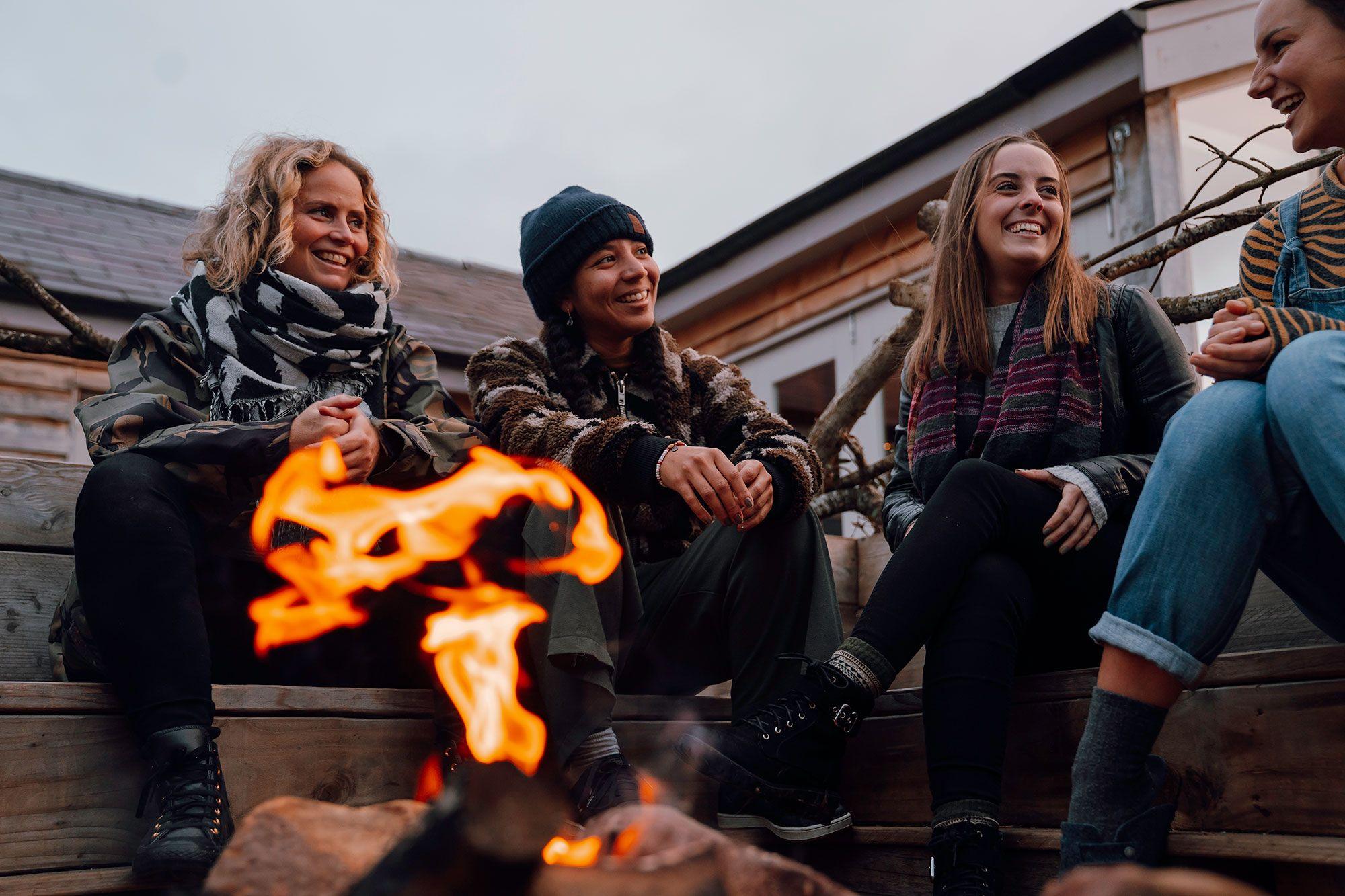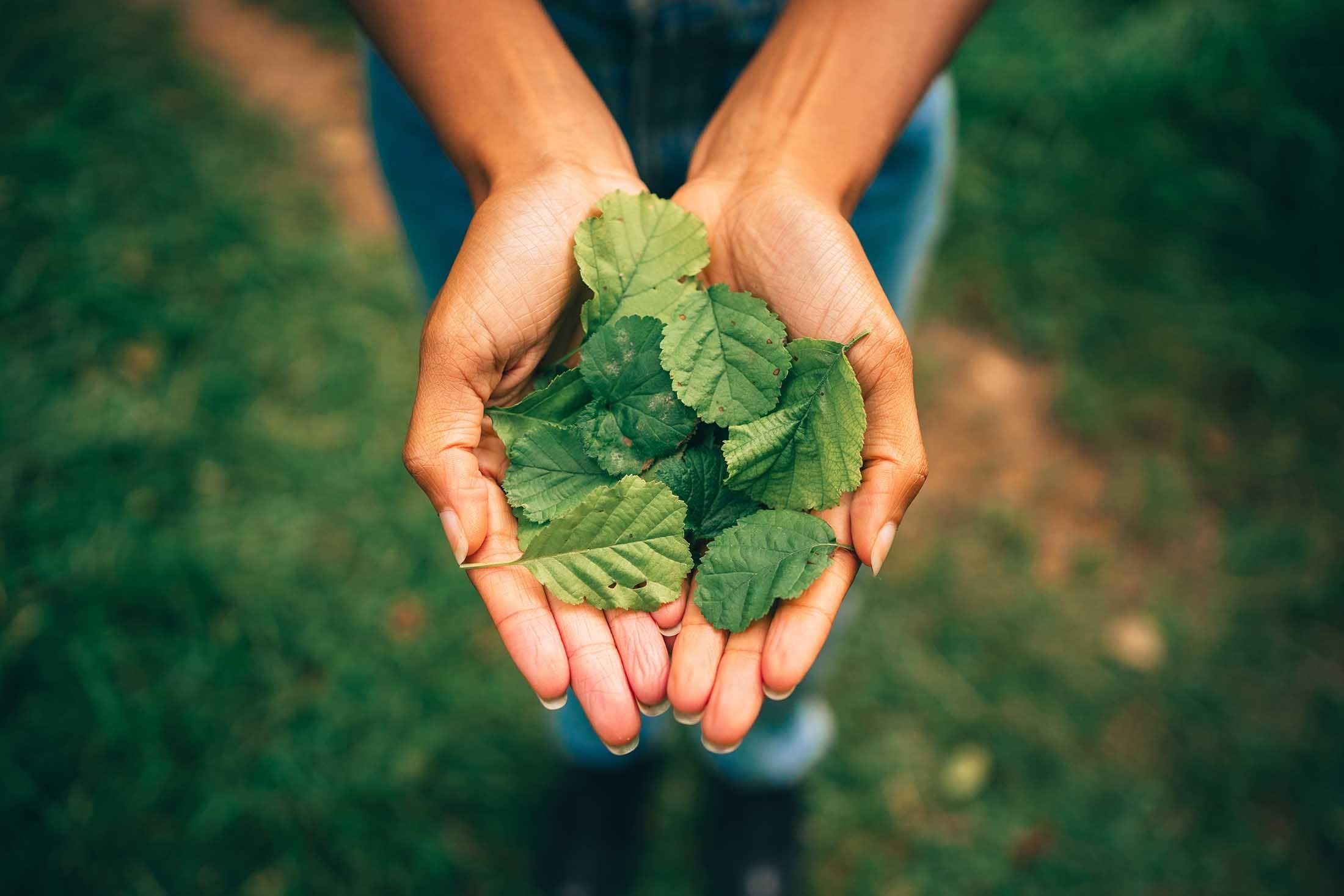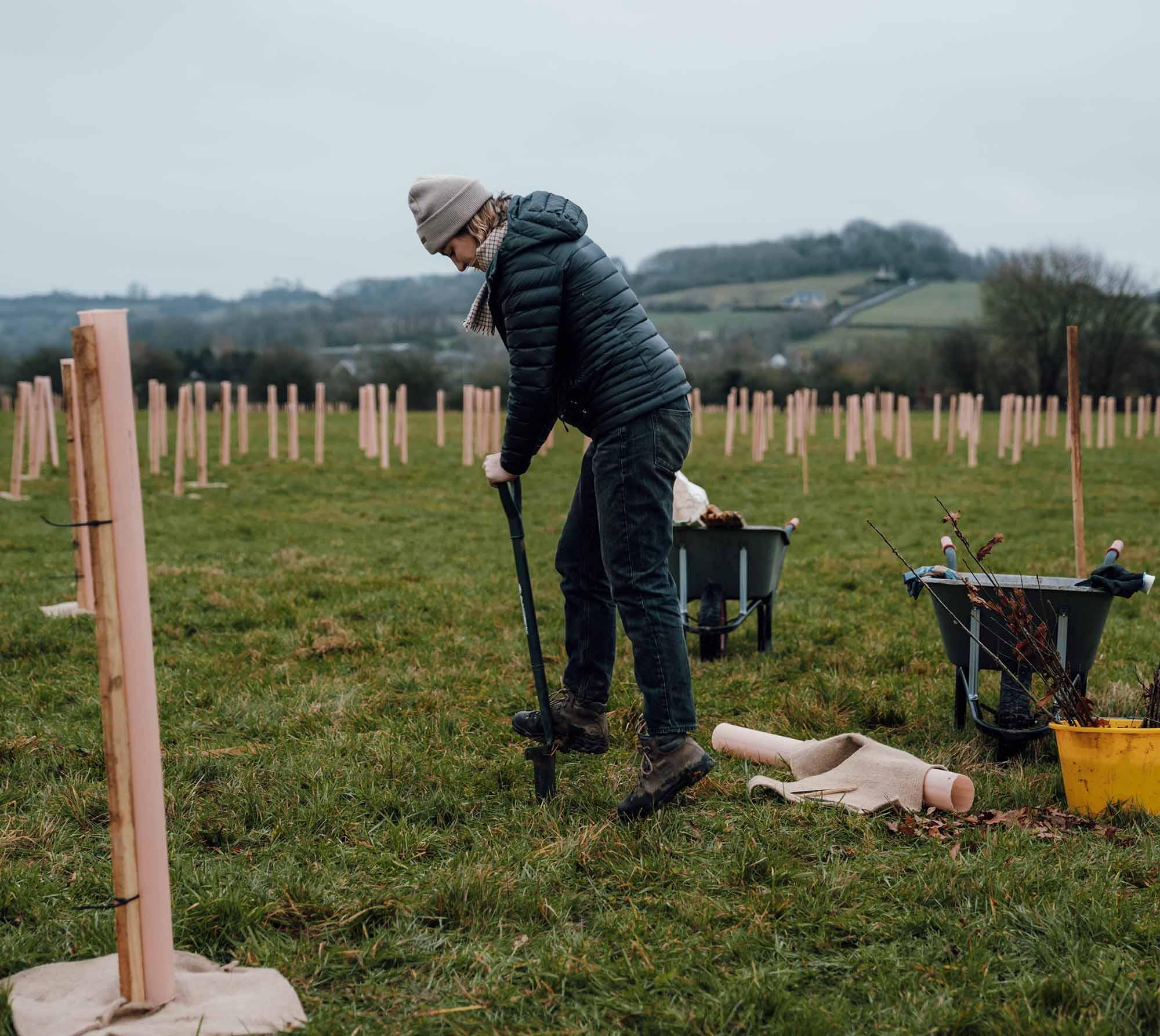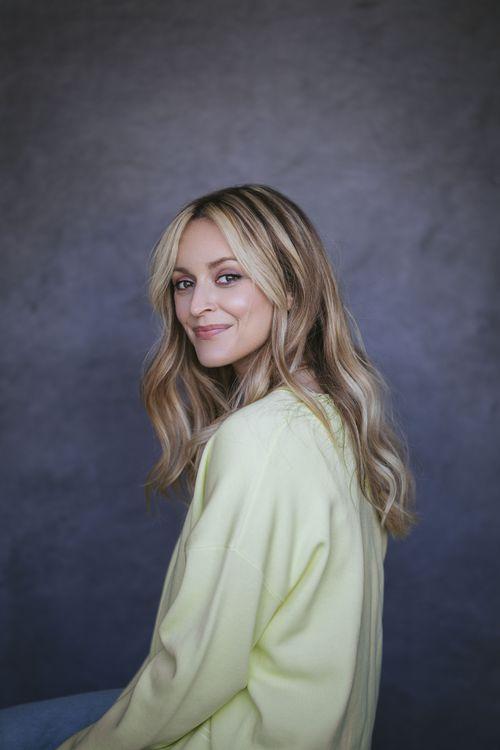
A Life More Wild - Series 2 Episode 3
Fearne Cotton & Kris Hallenga
Exploring Richmond Park with Fearne Cotton
Episode three of A Life More Wild finds us in Richmond Park, with tv presenter, writer and founder of the Happy Place festival Fearne Cotton. The park is a place where she's coped with loss, got the kids out of the house and had some of the many ideas that have turned into best selling books, tv shows and events. We also speak to Kris Hallenga, who founded the charity Coppafeel after being diagnosed with terminal breast cancer. She took the organisation to nationwide fame before stepping away from it all to run a coffee van with her twin sister in Cornwall.
So this is where you come to get away from it all?
Yeah, when you're out in a place like this. None of that stuff really matters. I mean, doesn't matter anyway, but it really doesn't matter here because these gorgeous handsome trees don't care who I am or what I said or what I didn't do.
Why do you love it?
Today the sky is this very, very deep blue combined with the lush green leaves we've got on the trees, thank goodness. I so look forward to when the trees get leaves on them again, it just looks dense and beautiful in here. And the other cool thing about being in Richmond Park is that King Henry the Eighth used to romp around here with his horses. And that always sort of blows my mind. Like, King Henry the Eighth, who's sort of this almost mythical character in history because it feels so long ago and he was so extreme. He would be romping around here on a horse!
Where are we heading?
So what I'd love to do now is go on a bit of a walk in a loop. First of all, through quite an open area, where we might see some deer, we might see some parakeets. And back round in a circle to Pen Ponds, where there's one particular pond, a small pond that has some really special family meaning for us.
Have you always loved walking?
So my parents are really into keeping active and walking and that's certainly been a big part of my whole life. I guess really grew up in the suburbs. So you know, we didn't have loads of greenery and outside space to explore when I was younger, but I've always needed to get out and walk and be outside. I'm a bit of a fidgeter naturally, so I need something to counterbalance all the sitting down inside. I've been like it since I was a kid. I'm big on movement. Just walking for me is enough. I used to be really into like running long distance and whatnot, these days I'm slightly lazier, I guess. I just really enjoy a nice, peaceful mooch about.
Now we're out in the open...
So we've walked out of the really dense tree-lined area of the park that runs around most of the perimeter and we're in quite an open spot. Lot of people walk their dogs here, there's often deer roaming around this section. I can't see any today but there are very pretty little butterflies which is very lovely. And you can see a little glimpse of London in the distance there. If you walk more to the right, you end up on a bit more of a slope and you can see The Shard and the London silhouette, which some people love. I don't love it, because I'm pretending that I'm in the countryside while I'm in here.
You want to get away from it all?
I love my job, I really do love it and I feel very lucky that I get to do it. But the thing I've struggled with relentlessly over the last 25 years is sort of an outside opinion and outside commentary and that has so directly affected my own self worth with a sort of perfectionism that I can often really cling on to. When you're at home and you're on your phone, or you're doing emails, working, whatever it is, you get so sucked into all of that. And it just chips away at your confidence and all the important things that we need to go out and enjoy ourselves. So this park has provided an essential break from all of that craziness, just to be able to get out come rain or shine or snow, we've had some amazing snowy times in here with the kids.
Do you think that the pressure of outside opinion is common?
I think most people in the public eye conflate other people's ideas with their own. And I've certainly done that, certainly in my 20s, I think you do feel like your personality is made up of just other people's opinions exclusively at times. So, I've definitely had to really focus on that and make sure that I'm going back to what I know to be the truth, and, and also being flexible in that way, because I don't even know exactly who I am and what I'm meant to be doing. I want to be open-minded about it all really, because I think as soon as we become too set in stone about ideas around ourselves, we get a bit stuck, and probably a bit defensive and we just become too wedded to the idea of "I am this" and you put all the different labels in place. I'm a mom, I'm, whatever you do for a living, I'm a friend, I'm bad at this, I'm good at that. So, you know, I think it's constantly like a daily thing I have to work with, because I have people telling me what they think of me all the time, good and bad. And you almost have to ignore both because I don't think it's particularly healthy to hugely take either of those ideas, but it's much easier said than done.
So you come here to hear your own opinion?
The thing that this park has provided more than anything is ideas. I reckon every book idea I've ever had, has been whilst I've been walking or running in this park, and I actually just thought of a new book idea whilst I was running in here about a month ago. I don't think I can access those sorts of ideas in the home because I've usually got kids shouting at me and there's washing to be doing or a cat's meowing at me or doorbells going and I just need to have zero distraction. So I've had probably all my best ideas in here, I reckon.
Where are we now?
This bit that we're walking up to now is really beautiful. There's this kind of alleyway of trees and in a minute, you can see the White Lodge Ballet School, which is really a grand, beautiful building. Then just over that little hill there, there's an area called Pen Ponds. There's a huge one, and some smaller ones and one of the smaller ones is our little spot to go to and pray, in a non religious sense, I'm not religious.
Have you always been this in tune with yourself?
I think because I'd had a bad patch of mental health in my early 30s, I started to feel like I was moving out of that period, with a bit more clarity. And I don't think... it's not like then I was fixed. You know, it was just a feeling of I thinking I'm ready for something a bit gentler and just looking at what makes me feel really good, rather than being caught up in this vortex of having to just do stuff all the time and worrying what other people think about me or whatever it might be. When you're out in a place like this, none of that stuff really matters. I mean, doesn't matter anyway, but it really doesn't matter here because these gorgeous handsome trees don't care who I am or what I said or what I didn't do. The deer that are chilling out under the tree don't give a toss if my project's done well or hasn't done well. The little parakeets, they're not judging me on any level. So I think it is a real grounding sort of leveller.
Is this the pond?
This is one of the smaller ponds amongst the Pen Ponds. It's where Jessie's mom's ashes are, his uncle Brian, two of our cats, Rudy and Talulah. Also more recently, our friend Alan, whose daughter Carrie very kindly gave us some of the ashes. She gave them out to people that loved Alan dearly. So this is certainly a place that we come to, to sort of remember those people. And most definitely for Jesse is where he comes to chat to his mom, he comes here weekly, if he's walking or running, he'll just sit and have a little chat with his mom and send a little prayer up to her. So yeah, it's very special place for all of us.
It sounds like you have quite an emotional relationship with this place...
I'm always going through something so oh my god, I've cried in this park more than I've done anything, I reckon, because I feel very floored by the beauty of it, which I think always releases emotion. I don't want to suppress emotion, I don't want to keep it all pent up. So I know that if I come in here, and I put some Ludovico Einaudi in my headphones, I'll probably have a cry. And you know, that is an important thing. Certainly after my cat died last year, who I'd had for 20 years, I came in here two or three times a day for short walks just to cry and get it out of me and sort of remember her and honour her and it was a really lovely part of that grieving process really.
But it's good as well as bad?
I'm not ashamed to say this, you know, I'm really quite ambitious. And I really like being ambitious. I'm constantly having ideas, my brain doesn't stop, which is good and bad, because a lot of the time, I'm exhausting myself and then I can't sleep at night and I wake up in the morning and straight away there goes my brain worrying or pondering or creating ideas. So I do still have a lot of goals and a lot of dreams and that makes me feel good. I just try and not get too hung up on when it's finished or what that finished thing looks like and if it turned out how I thought it was going to, because really most of the best bits of my career have happened unplanned and the stuff that I've really held tightly on to in terms of dreams and ideas have usually fizzled out because there was a ceiling of sorts and I've gone, "oh well I've done that now"
So you try not to plan too much?
I didn't plan any of this. This just all happened by accident so I've learned that if I'm too rigidly thinking of goals then I'm closing the door to loads of other things that I don't even know are possible, so I'm trying to just be a bit more open minded I guess really. I think it's important to be out in nature. We feel particularly drawn to it when looking at mental health because we are it and the modern world has told us that that's not the case. More recently we're going "oh wait a minute, there is no difference." So we're just being brought back to the truth of being part of this rather than a separate entity.
One of the things that stands out listening to Fearne is the sense of how important it is to find or create your own space. This was something that founder of breast cancer awareness charity Coppafeel, Kris Hallenga, learned at several stages of her life, from her diagnosis with breast cancer to founding, building, and then choosing to step away from the charity to follow who she really was, and what made her happy, which turned out to be Cornwall and ice cream.
So obviously, podcast is all about nature and your relationship with it. So tell us where you are right now. What's your nearest bit of lovely outdoors?
I am in Cornwall, so I'm a stone's throw away from the beach. I'm looking at some greenery outside. I'm at my sister's house. And where I live I can walk down to the beach, and it's heaven, pure heaven.
Give us a very potted history of setting up the charity and that journey
Yeah, where do I start? It's been 13 years now. So I was diagnosed with breast cancer when I was 23, which was 13 years ago. And I found it quite late, because I wasn't aware that I should get to know my body and know my boobs. By the time it was found it was a late stage diagnosis. So it had spread to other parts of my body and it wasn't curable, but it was treatable. And thankfully, for 13 years, we've thrown different things at it and have somehow kept me alive. But from the very beginning, I was a bit baffled and a bit frustrated by the way my diagnosis happened and also that I was so unaware of the need to know myself and know my body. So having done a bit of research and realising that no one was speaking to young people about breast cancer signs and symptoms, I set up a charity called Coppafeel, which is still running today. Sadly, there is still 13 years on, a need for it. We haven't solved the issue yet. Every day, someone will be diagnosed with breast cancer. And sadly, a lot of cases are still diagnosed late, when it can't be cured. But we are certainly changing things. We are starting to gradually change people's behaviour and attitude towards getting to know themselves from a younger age. So yeah, it's been a journey.
You got it onto the curriculum. That must have been a huge
Yeah, it was. It's just unfortunate that when it was due to start on the curriculum was pandemic time. Now we're at the point where we're trying to make sure that it's actually being taught and that teachers have the right materials to do that. Because they might see the curriculum, scratch their heads a bit and wonder what next? That's where we come in and say, "Hey, we have all the lesson plans for you. We've been here we know what you need to say to your students." But I think until someone tells you could find your own breast cancer and you can find it early and survive it, you don't know that.
In your book, it sounded incredibly frantic in those early days with the charity, living in London. I wondered how much you managed to get outside and how much of a part it played in your life at that point
At the beginning very little, because I believed that in order for Coppafeel to really be in people's live and make a mark, I had to be in London, because that's where it all happens. I mean, I was in London a lot. I spent most of my time there. And when I wasn't there, I was commuting back to Northamptonshire to get treatment there. So the only green I would see would be from the train. I'd be in a hospital and then I'd have to come back again. Then I moved all my treatment to London and I was going to Charing Cross Hospital, and I'd have to walk through a graveyard to get there from the train station. And that was my only moment of peace, calm and greenery that I had before stepping into a really crazy hospital department. I think it makes you notice things a whole lot more. I would notice that the blossom was out because I think it's just not something that you see every day. And I definitely took the moment to appreciate it before having to launch back into some heavy cancer stuff. So at the start very little green time for sure.
In the book, there were hints of travel stories a throwaway line or two, but what was it like travelling for you then?
Whenever people say, where would you go back to, I think of this onzen that I went to in Japan, which is basically a spa in the mountains. You just feel so part of nature there. The only thing between you and nature is this very thin rice paper door and window. You're sleeping on the floor really, but it's so comfy. It's just really incredible. And the food is amazing. And you're just in the mountains. I don't think I've ever smelled such clean, incredible air. That was an amazing time. I love exploring new places and I love a holiday as much as the next guy, but I also just really appreciated what I had at home, and I loved my life. And I found it so exciting and exhilarating. That's a really good place to be and when you can be excited about coming home, but also really appreciate the holiday.
You had a lovely line about bucket lists being for people who don't know what they want to do. They don't know what they want to do right now where they are, I thought that was such an interesting point.
Bucket Lists seem to be associated with cancer, there's no other disease that seems to be linked to doing things before you die. I don't ever hear that when people talk about diabetes, or heart disease or anything like that. But cancer patients seem to have this pressure where you need to do all the things, live all the lives. Quick now before you die. And I don't, I don't subscribe to that theory. I think if you can be happy with the life that you have, then I think that that's what you should be striving for. Because I think I am genuinely scared to lie on my deathbed and feel massive FOMO and feel like there's things that I still wanted to do. So it became my aim to be happy with what I have done, happy with what I am doing. Rather than constantly thinking about adding things to a list of places that I might not see. I just hate the thought of that. And not everyone feels that way. I feel like this is a very unique feeling and very personal to everyone. But they certainly shouldn't be pressured to go and do all the things and see all the things if you don't want to do that.
So then a few years ago you stepped away from the charity full time and moved down to Cornwall. Was that all part of needing to have a bit more of a life for yourself?
Yeah. I always hoped that I would manage to get to the the charity to a place where it could survive without me. I think everyone should have some kind of an exit plan if they can. For me, it was a very, very real exit plan. In the end, it needed to be discussed in meetings. So there needed to be a point where we could say, hey, what if Chris drops down dead tomorrow? What are we going to do with this charity? Not that that would have happened, because you don't drop down dead with cancer. But anyway, I thought if I could get to the place where the charity could really thrive without me at the helm, and I was still well enough to do life, then I would absolutely move to Cornwall, and be near my twin sister, and bring a bit of sort of expanse back into my life.
So then you move to a more rural environment. Do you take your time to adjust? Or are you just ready for it?
I was so ready for it. I think because I was whenever I could I was coming down to Cornwall to see [her twin sister] Maren, so it didn't feel like a massive leap to me. I really had had enough of London. I think you either get out or you stay forever. I think some people really love the city life or their life and I have huge respect for that. But I just knew that I needed to be able to see more expanse. I needed to see the sea. I needed to see the horizon, to be able to see and breathe in just a bit cleaner air as well.
I read the part in your book about Dr. Turner and her approach to the connectedness of everything. That sounds like an easier way to access that sort of thing is to come out of that frantic environment...
Dr. Kelly had nine things that are really important for cancer patients to kind of do or about how they live, and most of them were emotional. It was about who you were, instead of what you were doing in terms of treatment, or supplements, or all the other things that you can do. Obviously, those are also important, but it was about who you are in the world, and how you feel about who you are in the world. That was really important. So I needed to come to Cornwall, and stare at the ocean to finally allow myself to think about who I really was. And what truly made me happy. I'm so glad I did.
And that's that's bowling around the countryside in the van is it? That's the next step isn't it?
Yeah. So a year after I moved my sister and I bought this old vintage van, one of those corrugated ones that you see used in a lot of food markets in London, not that common here in Cornwall. We bought it off this guy on eBay and turned it into a cake and coffee truck. And then last year, we started doing ice cream from the harbour, in Newquay. So a million miles away from my life with cancer and my life running the charity. But still great. We decided to focus on what made us happy, which was food, coffee, cake, and making people happy with those items. And that was it really.
So you just eat your own profits all day?
All day! Every day. We make no money.
When I was reading the book, there was a lovely line about creating a life that will draw people in rather than going out and finding people that will make you better
Yeah, exactly. Be the attractive person to yourself, not to other people.
Whilst this is obviously a very nature themed podcast... having read your whole book, there's one question I just have to ask you. How are you feeling about the fact that Neighbours is ending?
I cannot talk about it. For the last day, we are actually going to be working from our van in Newquay harbour and my sister and I have decided to dress up like characters from the show. And then say to any customers, if you come to the van dressed up as a Neighbour's character, you get a free cake and coffee.
So you're lucky enough to live right down on the coast right by the sea, you obviously have a much more immediate connection to nature now.
Yeah, I was worried that I would take it for granted and get sick of the sight of the sea but I haven't. Every time I walk down to the sea I'm just so grateful to be here to see it. Sometimes I get in and when I do go for a cold water swim, just being fully immersed in that, it's almost like I shed everything else that's going on in my life. Everything falls away for a millisecond but it's enough for me to kind of go alright, I've got this, I can I can keep going. I feel so grateful that I literally have that at my disposal so quickly now. But it's not just that, it's even things like... so in London I was walking through a graveyard to get to the hospital, which was my only piece of green, but then I'd have to get on a crowded underground train back home again. And here what I have to contend with on the way home is maybe one or two tractors on the road. But even today, I had to go to hospital for a blood test and driving home, just the hedgerows in May in Cornwall are insanely beautiful and everything is so lush and green now there's so much colour in the hedges. And I just thought "Kris, well done for still noticing this. You've been here five years now. Well done for still appreciating this." I'm so glad that I still do and that it can take me away into a really happy place for a moment. That is why I made the best decision ever moving to Cornwall.

